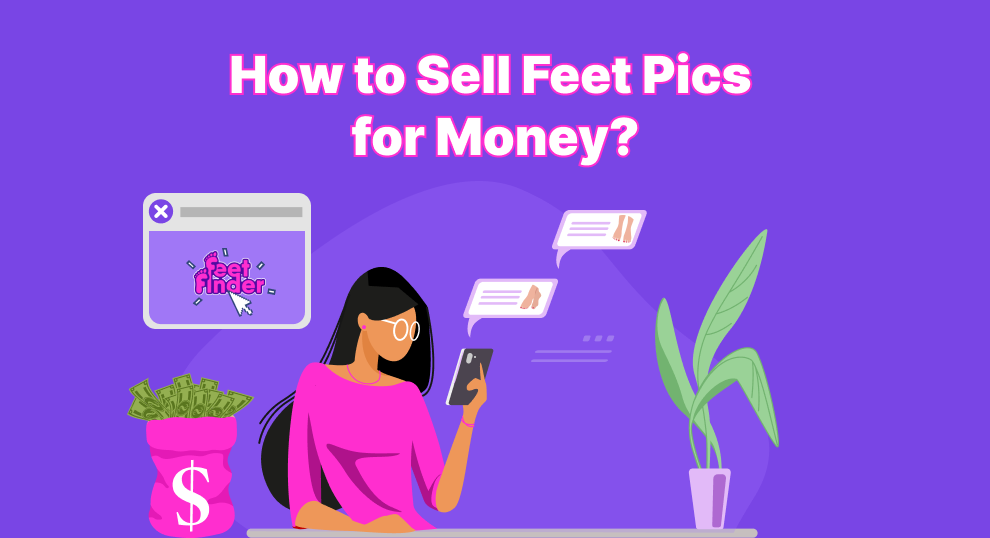Once you’ve developed a good business plan for your start-up and determined how much financial support you’ll require and how it would be used, the only remaining question is how to find private investors. Although this is a frightening step to take, it is rational, as being proactive is always the best course of action.
Obtaining investors can benefit your organization at numerous stages. Several business entrepreneurs look to personal investors for assistance in starting or growing their businesses by providing cash to acquire new tools, lease more premises, or raise payroll.
If you’ve been considering raising additional funding for your small business, you have a few alternatives, including locating personal investors.
Why do startups seek private investment?
When it pertains to banking, chances are you’re not looking for a one-size-fits-all answer. Numerous large banks are unable to consider small business applications on an individual basis. This is why private investors may be a viable option.
Private company investors are individuals or firms that use their finances to provide capital to other businesses in the hope of earning a profit.
The benefits and drawbacks of partnering with a private investor
As with any, there are always a few advantages and disadvantages associated with private investment. You should examine these when determining whether or not locating a startup investor is right for you.
Several of the advantages include the following:
- Collaborating with a private investor gives you the option of who to invest with.
- Due to their awareness of the dangers, these investors frequently give greater lending flexibility. If you are unable to meet the stringent conditions of a large lending institution — perhaps you lack a lengthy credit history — a private investor may be willing to overlook such concerns.
- With a large number of private investors, particularly those seeking equity holdings, you won’t have to worry about paying any debt while growing the business.
However, there are drawbacks:
- You may lose control of your business as a result. While some investors are proactive in delivering recommendations on the business’s path, this might also suggest they wish to participate in the decision-making process. If you’re accustomed to being the sole decision-maker, this can be difficult to adjust to.
- Additionally, you do not influence what happens to the equity shares owned by your investor. For instance, they may intend to sell down the road to someone with whom you would rather not work, and you may have no say.
- Your investor may have certain benchmarks or objectives for your business, so be willing to provide documentation and reports regularly.
What Are Investors On The Lookout For?
Investors consider a variety of factors when considering whether to invest their money or the money of their firm in another business. This involves a review of a business’s:
- Idea or product (is it one-of-a-kind? If not, are the characteristics distinctive? If not, how is this going to sell?)
- Entrepreneurial Plan (including market analysis, and product execution)
- Management team (is senior management educated and experienced enough to accomplish the objective?)
- Financial data, including the following: Expenses (how income is spent), Profitability (to date) and Financial projection.
- Metrics of success ; Additionally, investors would want to know how they might exit the business once the time comes.
Private investor types
You have several possibilities when you look for personal investors to fund your firm. Conduct a thorough analysis of the options available to you and the solutions that may be the greatest fit for your circumstances.
1. Angel investors are individuals who contribute startup capital to help a firm thrive. Along with seeking a return on that investment, which is sometimes calculated as a percentage of the owner’s equity, they actively engage in business decision-making.
2. Crowdfunding websites: Through crowdfunding websites, a large number of small business investors combine their funds to invest in your firm. By and large, these investors are not interested in acquiring any equity in your organization. Certain equity crowdfunding sites, on the other hand, do.
3. Friends and family: You can always solicit capital from your friends and family. It’s crowdfunding on a more intimate and personal level. If you chose this route, it is critical to inform them of potential dangers and to conduct any business interactions professionally.
4. Private investor loans: These are loans made directly to individuals or businesses, not through banks. Generally, the investor wants to see your small business succeed and will want you to repay the loan, plus interest, within a specified time frame.
5. Private equity is when private firms or individuals invest in your business in exchange for a stake in it, typically in the form of owner’s equity (the owner’s claim to the company’s assets). Often, the investor’s objective is to profitably sell their ownership a few years later, if the business continues to develop, which means you are not repaying a loan.
HOW TO FIND PRIVATE INVESTORS FOR YOUR STARTUPS
The following are nine strategies for locating the ideal investor for your start-up:
1. Startup Launch Platforms
Businesses have developed dedicated platforms that provide information, analysis and help with all stages of starting a business, including methods for connecting with investors. Startups.co, for example, provides a straightforward conduit for efficiently sourcing investors.
Already with 13.9 million members, Startups.co is the world’s largest startup network, providing an amazing opportunity to connect with investors in your space for funding via Fundable as well as mentoring. Gust is another up-and-coming start-up platform, having already invested $1.8 billion in early-stage enterprises.
2. Angel Networks
You can discover an angel investor that will also invest in your start-up and will also mentor you, offer sound advice, and connect you to their network of friends. Funded.com, the Angel Capital Association, and the Angel Investment Network are all good places to start because they each have hundreds of angel investors who share information on the kind of investments they seek. you can always check Angellist
3. Crowdfunding Sites
Crowdfunding sites connect you with a diverse range of investors – from the general populace interested in the “next great challenge” (Kickstarter, Pererbackers, and Indiegogo) to philanthropists committed to assisting others in realizing their dreams (RocketHub) to accredited investors looking to fund new ideas (OurCrowd).
Each crowdfunding platform has a unique focus and method of encouraging investors, so carefully examine each one to see which one corresponds most closely with your strategic goals and vertical.
4. Accelerators & Incubators
Because your start-up is your baby and you want it to thrive, partnering with an incubator or accelerator provides you with access to a wealth of investment resources to watch your business grow and succeed. These investors are particularly interested in playing a larger role in developing your concept into a viable business model and providing the financing necessary to make it a reality.
These incubators and accelerators also provide physical space for you to set up your office, making it simple for us to work directly with you. Because other start-ups share space in the same building, this is an ideal location for exchanging ideas and growing together. They may want a portion of your start-up in return for funding, so you’ll need to decide how much you’re ready to give up.
Accelerators for startups, such as 500Startups, TechStars, and YCombinator, provide advice, tiny seed investment, and introductions to other investors via their networks.
5. Small Business Administration
Conventional sources of funding, such as the Small Business Administration, remain viable sources of funding, while more programs to stimulate the economy have been introduced in recent years. They specialize in small company loans and grants, but they may be just what you need and are offered on reasonable terms without intrusion or the assumption of a stake in your business.
6. Websites for Professional Social Networking
Apart from LinkedIn, which remains a good place to hunt for investors, a slew of professional social networking sites has arisen that may connect you with investors of all types and business categories. Several of these new professional social networking websites also connect you with financiers from other nations that are interested in participating in the global business climate and frequently bringing your product or service to their region of the world.
EFactor, Xing, Plaxo, Startup Nation, Cofoundr, and Meetup are a few professional social networking sites to explore for investor contacts.
7. Private Equity Firms
Private equity firms are regarded as a more traditional route to investor finance, providing access to investments ranging from a few thousand to millions of dollars, primarily to early-stage companies with Significant potential for expansion across a broad spectrum of industries.
The goal is to sell their stake a few years after investing to benefit handsomely from their investment in your start-up. Private equity firms spent $347 billion in 2012 across roughly 2,100 companies in the United States, according to Private Equity Network. If this sounds like the type of investment partnership you’re searching for, Find Venture has compiled a directory of private equity firms that are actively seeking new enterprises.
8. Platforms for Online Lending
With the enormous constraints that currently accompany obtaining bank loans for a start-up, new solutions have evolved in the shape of internet lending platforms that perform a similar function. These may include peer-to-peer lending platforms, alternative funding sources, or huge investors interested in assisting small firms while benefitting from the lending terms. Prosper, TrustLeaf, OnDeck, and Lending Club are all examples of reputable online lending services.
9. Marketing Efforts on a Personal Level
Not only will you spend lots of time locating investors via the methods described above, but you can also assist them in discovering you with a focused personal marketing campaign. This entails placing yourself in places where investors are likely to find you, such as a website, social networking sites, guest articles on established blogs and personal blog entries, Quora discussions, and traditional media channels.
FAQ
- What happens to investors if a business fails?
In general, investors will lose their whole investment unless a portion of it is recovered through the liquidation of any firm assets. Typically, when a company fails, investors lose their whole investment.
2. How do you use LinkedIn to connect with investors?
If you don’t even have a mutual link, follow the company page of a possible investment. Join any pertinent LinkedIn groups that your target may be a member of. Read their blog, peruse their profile, and peruse their postings to become acquainted with the individual’s portfolio, investment philosophy, and likes and dislikes.
3. How are private investors compensated?
They earn money by counseling businesses, structuring sales, and raising finance, all while collecting a set fee on each deal. In comparison, private equity firms profit from the sale of their interests. They attempt to sell the businesses for far more than what they spent for them.
Conclusion
Do not get unmotivated if you are not inundated with investment opportunities or if you are flat-out denied — multiple times. Repeat the process because this just indicates that you haven’t discovered the perfect investor who understands your business’s needs. If you stop now, you might not ever find your ideal partner.










